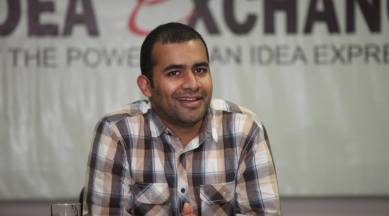Stay updated with the latest - Click here to follow us on Instagram
Rs 20-30 cr paid to Vijay Nair to achieve illegal cartelisation in Delhi excise policy: CBI chargesheet
The central agency made its submissions before Special Judge MK Nagpal, who summoned seven accused persons, including Nair, after taking cognizance of the chargesheet.

The CBI chargesheet filed into irregularities in the excise policy case has stated that hawala channel transactions to the tune of Rs 20-30 crore was allegedly made by South-Indian based liquor manufacturers to AAP communications chief Vijay Nair in order to use his position in the ruling party in Delhi to achieve the illegal objective of cartelisation.
The central agency made its submissions before Special Judge MK Nagpal, who summoned seven accused persons, including Nair, after taking cognizance of the chargesheet. It was filed under sections of criminal conspiracy punishable under IPC section 120B and under sections 7, 7A and 8 of the Prevention of Corruption Act at Rouse Avenue district court.
monthly limit of free stories.
with an Express account.
The details of the chargesheet detailing the investigation carried out so far was also discussed in court as the CBI submitted that it was still probing the role of Delhi Deputy Chief Minister Manish Sisodia and other public servants.
As per the chargesheet, the accused persons entered into a criminal conspiracy when the excise policy was still under formulation from April 2020 to get “undue benefits by circumventing provisions of the policy and to achieve the illegal objective of cartelisation between liquor manufacturers, wholesalers and retail vendors”.
It alleged that “huge amount of around Rs 20-30 crore was arranged by businessman Abhishek Boinpally at the behest of some liquor manufacturers belonging to South (India) and this amount was transferred or transmitted by him through accused Dinesh Arora to AAP communications in-charge Vijay Nair and his associates during the period between July and September 2021 in cash using hawala channels”.
The CBI chargesheet states that this was advance money “paid by liquor manufacturers from South” to Nair for “exercising his influence upon and using his position in the ruling party in Delhi to achieve the above illegal objective of cartelisation between different components of the excise policy”.
It has also been alleged in the chargesheet that the “profit margin for wholesalers was intentionally kept as high as 12% of the landed cost of IMFL (Indian Made Foreign Liquor) and 6% share out of this 12% profit margin was to be paid or returned to Boinpally, who is stated to be a frontman of liquor manufacturers from South, against the above illegal amount of Rs 20-30 crore earlier sent by him to Nair through hawala channels”.
The chargesheet has laid out the role of accused Arun Ramchandra Pillai, who is also stated to be “a frontman of the liquor manufacturer group from South”, and was given 32.5% shareholding of M/s. Indospirits as a result of the above cartelisation.
The CBI alleged that this company was able to earn net profits of Rs 68,11,47,117 and out of this, 61% share of profits was transferred, either directly or indirectly, to the account of Pillai or in some other accounts as per his instructions”.
The investigation into the credits made into the bank account of Pillai shows that “out of above profit margin of wholesale licensee, an amount of Rs 4.75 crore is alleged to have been transferred in the account of accused Mootha Goutam, the MD of India Ahead News, and from his account, an amount of Rs 3.85 crore is also stated to have been transferred in account of accused Boinpally”.
The agency alleged that some further payments are also alleged to have been transferred from Pillai’s account to some companies of a media group of South India, which allegedly belongs to Boinpally and Goutam.
On the role of businessman Sameer Mahendru, the CBI alleged the wholesale distributorship of liquor brands owned by M/s. Pernod Ricard India Pvt. Ltd. was given to him. The CBI told the court that Mahendru was able to secure a wholesale (L-1) licence and another company named M/s. Khao Gali Restaurant Pvt. Ltd., which was also owned or controlled by him indirectly through his father-in-law, was given two retail zone licences (L-7Z)”.
The agency alleged that these licences were processed and approved by public servants Kuldeep Singh and Narender Singh, who are also alleged to be members of the criminal conspiracy, after “intentionally or willfully ignoring specific complaints and documents on record showing a cartelisation between above companies and accused”.
The agency alleged that a “bribe of Rs 30 lakh was paid to Narender and he as well as Nair exercised pressure and undue influence upon their subordinate public servants” to achieve the illegal objectives of the conspiracy.
The legal teams for the accused persons have denied all allegations made in the chargesheet stating that they will make their case before the court during arguments on charge.